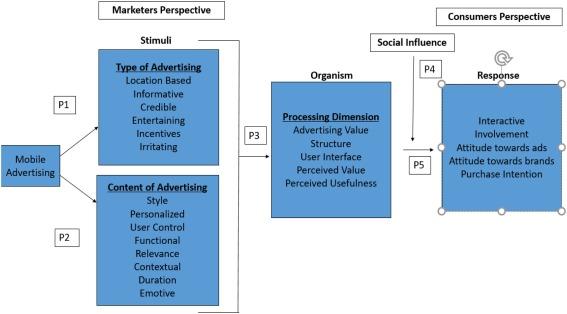Future-Ready: Preparing Students for Tomorrow’s In-Demand Jobs
As our world continues to evolve at a breathtaking pace, the skills and careers of tomorrow look vastly different from what we once considered “mainstream.” Today,it’s not just about mastering conventional academics; it’s about equipping students with the tools,knowledge,and mindset to thrive in an ever-changing job landscape. In this complete guide, we’ll explore what it truly means to be future-ready, highlight tomorrow’s most in-demand jobs, and offer practical tips for educators, parents, and students eager to embrace the future.
Why Preparing Students for the Future Workforce Matters
According to the World Economic Forum,over 1 billion jobs—almost one-third of all jobs worldwide—are likely to be transformed by technology in the next decade. The job market is rapidly shifting towards careers in artificial intelligence, data science, renewable energy, healthcare, and more. By preparing today’s students with essential future-ready skills, we empower them to seize opportunities, adapt to change, and lead meaningful professional lives.
- Technological Advancement: Automation and AI are reshaping business operations and job descriptions.
- Globalization: The interconnected world demands adaptability and cross-cultural competencies.
- Changing Education Standards: Modern curricula must go beyond rote learning to foster critical and creative thinking.
What Are Tomorrow’s In-Demand Jobs?
The future workforce is set to embrace a range of dynamic and multidisciplinary roles. Here are some of the in-demand jobs of tomorrow that students should set their sights on:
1. Technology and Data Science Roles
- AI & Machine learning Specialists
- Data Analysts & Data Scientists
- Cybersecurity Experts
- Cloud Computing Professionals
- Software & App Developers
2. Healthcare & Biomedical Professions
- Healthcare Support Professionals (Telehealth, Nursing, Diagnostics)
- Biomedical Engineers
- Genetic Counselors
3. Green Jobs & Sustainability
- Renewable Energy Technicians
- Environmental Engineers
- Sustainability Managers
4. Creative & Digital Communication
- UX/UI Designers
- Digital Marketers
- Content Creators & Social Media Managers
5. Education & Human skills
- Edtech Specialists
- Corporate Trainers
- Counselors & Mental Health Professionals
Staying abreast of these emerging fields can open doors to robust and rewarding career paths.
essential Skills for the Future Job Market
To be future-ready, students need to cultivate both hard skills and soft skills. The fusion of technical know-how and human-centric abilities is what sets future leaders apart.
Top future-Ready Skills:
- Critical Thinking & Problem-Solving: The ability to analyze situations and find effective solutions.
- Digital literacy: Navigating digital ecosystems with ease, from coding basics to cyber-awareness.
- Collaboration & Communication: Working effectively in diverse, often remote, teams.
- Creativity & Innovation: Designing new solutions and thinking outside the box.
- Emotional Intelligence: Managing oneself and empathizing with others in a globalized world.
- Adaptability & Resilience: Embracing change, learning new skills, and overcoming setbacks.
Benefits of Preparing Students for Future Careers
- Improved employability in a competitive job market.
- Greater versatility to pivot between industries and roles.
- Enhanced personal growth, confidence, and lifelong learning opportunities.
- Better ability to solve complex global challenges, from climate change to digital security.
- Broader awareness of emerging job sectors and entrepreneurial pathways.
Practical Tips: How to Prepare Students for In-Demand Jobs
Equipping students for the future is a shared mission among teachers, schools, parents, and communities. Here’s how you can help:
1. Encourage Lifelong Learning
- Promote curiosity and the habit of continuous upskilling, even outside the classroom.
- Use platforms like Coursera, Khan Academy, or Udemy for skill-building in STEM, communication, and digital literacy.
2. Foster Project-Based Learning
- Design real-world projects that simulate work scenarios, encouraging teamwork and creative problem-solving.
- Link classroom lessons with practical tasks, such as coding challenges or entrepreneurship competitions.
3. Build digital Fluency
- Integrate tech-driven tools and platforms into lessons, from robotics kits to online collaboration apps.
- Teach internet safety and responsible digital citizenship.
4. Expand global and Cultural Awareness
- Introduce language learning, global studies, and cross-cultural collaborations.
- Encourage participation in international exchange programs or virtual classrooms.
5. Support Social & Emotional Learning
- Prioritize social skills, empathy, and stress management as integral parts of the curriculum.
- Create a supportive school culture that values diversity,well-being,and respectful dialog.
Case Study: Future-Ready Schools in action
Example: Singapore’s “SkillsFuture” Initiative
in Singapore, the SkillsFuture movement has transformed education by integrating career guidance, internships, and skill-based curricula at every learning stage. Students are introduced to coding, innovation labs, and collaborative projects as early as primary school. This holistic approach has resulted in higher employability rates and a workforce well-aligned with global trends.
What we can learn: Proactive collaboration between government, industry, and educators helps students acquire relevant experience and confidence for evolving careers.
first-hand Experience: A graduate’s Perspective
“Participating in robotics club and taking part in virtual internships transformed my career outlook. Coding skills opened doors, but learning how to pitch ideas and work with diverse teams made me truly future-ready.”
– Alex M., Data Scientist & 2023 graduate
Alex’s journey reflects how embracing interdisciplinary skills and seeking real-world experience empowers students to succeed in tomorrow’s most in-demand jobs.
Conclusion: The Path Forward
In an age defined by change, ensuring that students are future-ready is essential for personal fulfillment and professional success. By prioritizing future skills—from critical thinking and digital literacy to creativity and resilience—we prepare young people for the in-demand jobs of tomorrow, no matter what the future holds.
It’s never too early to start. By working together, educators, parents, and communities can unlock every student’s potential and shape a workforce that’s ready to tackle the challenges—and opportunities—of the 21st century.
Ready to future-proof the next generation? Let’s empower every learner to reach their full potential!

